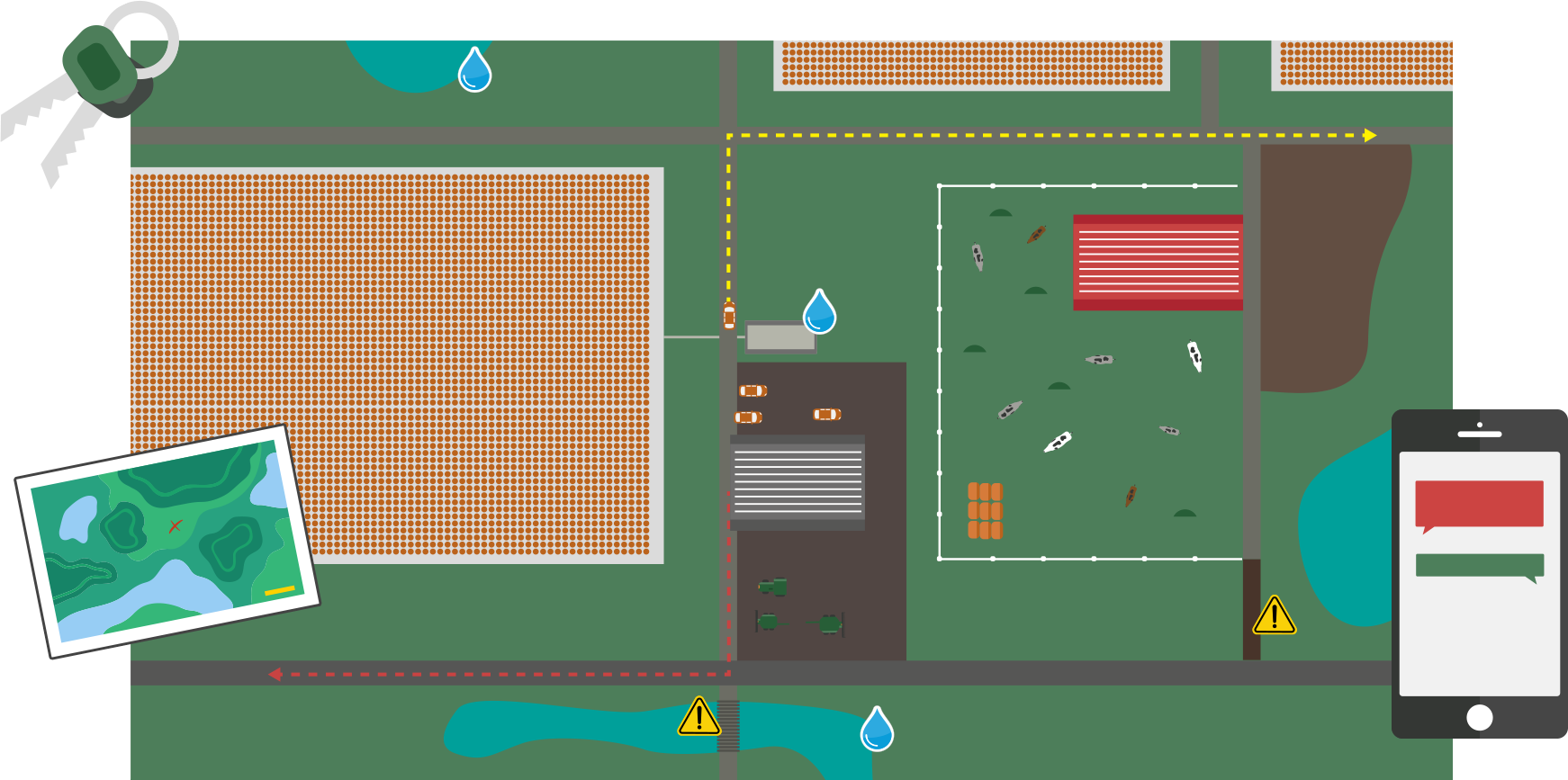Protect your farm or ranch from wildfire.
Preparing now can help minimize interruptions, damage, and loss.
Before Wildfires Start
Wildfires are a reality we all have to face. In addition to having the right coverages, preparation can help protect your investment and get your operations back in working order, faster.
Taking the time to ready yourself, your employees, and your property can make all the difference. Below are a few things you can do before wildfires begin.
- Be sure to have coverage in place
- Create evacuation plans for family and farm workers and make sure they're trained in general fire safety protocol and procedures
- Stay alert to fire and weather conditions
- Create a wildfire emergency kit (accounting for employees) that includes:
- Flashlights
- Battery-powered portable radio
- First-aid kit
- Bottled Water
- Manual can opener
- Non-perishable foods
- Whistles
- Protective masks
- Important documents including insurance policies
- Make an Emergency Call List and distribute it to all employees
- Plan how to contact employees if business is disrupted
- Create a phone list, text message alert, hotline, or website
- Consider advising employees to keep a wildfire emergency kit of their own and have important contact information at work
- Contact information should include numbers to reach their insurance agent, child's/childrens' school(s), and neighbors
- Have spare gate keys, combinations, and property maps available for firefighters
- Clearly mark water tanks, ponds, and other water supplies available for department use
- Mark roads to help prevent firefighters from getting lost or stuck
- Post weight limits for any bridges
- Reinforce bridges that can't support the weight of a fire engine, or provide information for an alternative route

Preparing Livestock
Remote locations and vegetation for grazing put livestock at great risk. Here are some crucial ways to help protect your animals:
- Create an evacuation plan
- Consider creating safe havens through rotational grazing
- Ensure proper registration and branding
- Establish a plan for feeding and watering, if grazing land is destroyed by fire
Basic Prevention
Even simple preventative measures can minimize the damage caused by a wildfire and help reduce recovery costs and time. The following are actions you can take to prepare your property.
- Move propane tanks at least 30 feet from any structures on the property
- Prune trees and vegetation back from roads so fire engines have access to the entire property
- The height standard for clearance is 13.5 feet
- Routinely clear dead vegetation and debris that has accumulated
- Learn the fire history and topography of your land to determine how much defensible space is required
- Local engine companies can help assess your risk
Creating Defensible Space Zones
Defensible space is a buffer between vegetation and the property you want to protect. It also allows firefighters the adequate room they need.
NOTE: Due to the surrounding vegetation and unique topography, agricultural defensible space can differ between properties. Contact your local engine company to help determine the amount you require.
- Prune low-lying limbs
- Clear dead branches, firewood, and other combustible material
- Remove any piles of brush or other combustibles that have accumulated
- Maintain fire roads and fire breaks
The Mutual of Enumclaw Wildfire Program is a service provided to members with Homeowners (HO-3 and HO-5) or Farm Property coverage.
We do not consider wildfire risk mitigation actions for our eligibility or rating plan. Mutual of Enumclaw uses a third-party vendor to assess wildfire risk and members can impact their score by clearing vegetation in the area surrounding
the property. This can be done directly by the policyholder on their property and at the community level, such as through NFPA’s Firewise Community program.
The information we share on our site is intended to serve as a general overview. Please refer to your policy or contact your local independent agent for specific coverage details.







